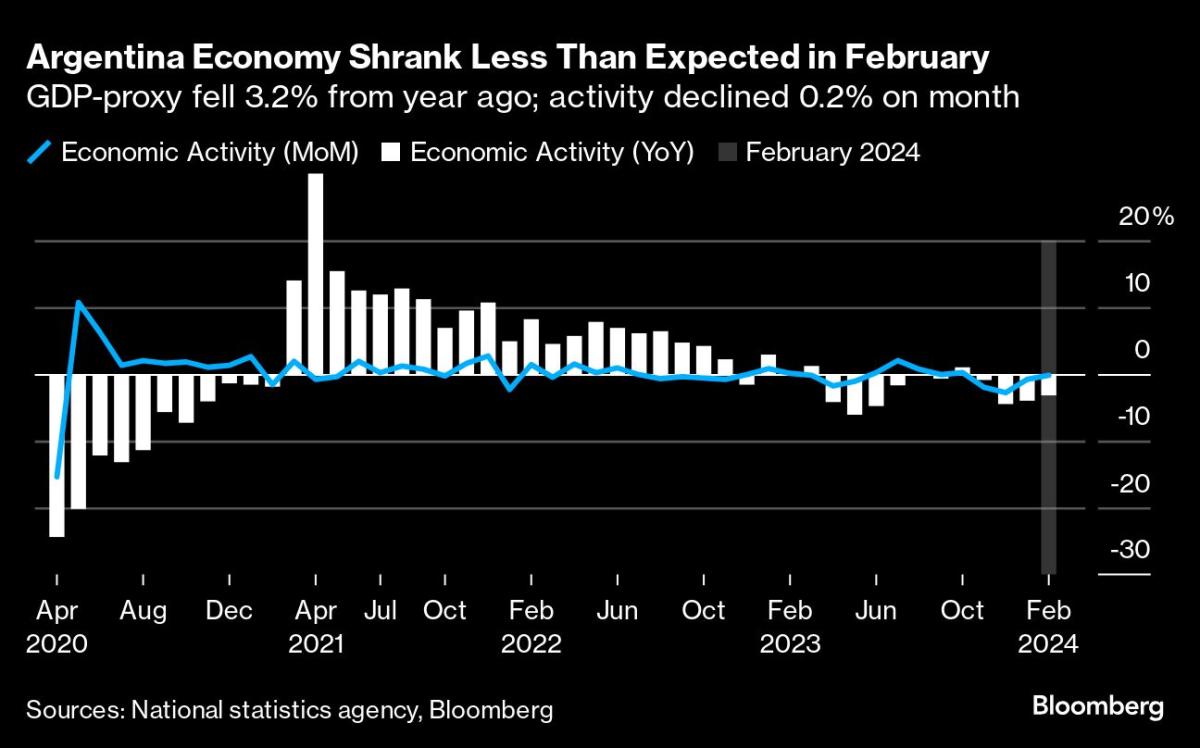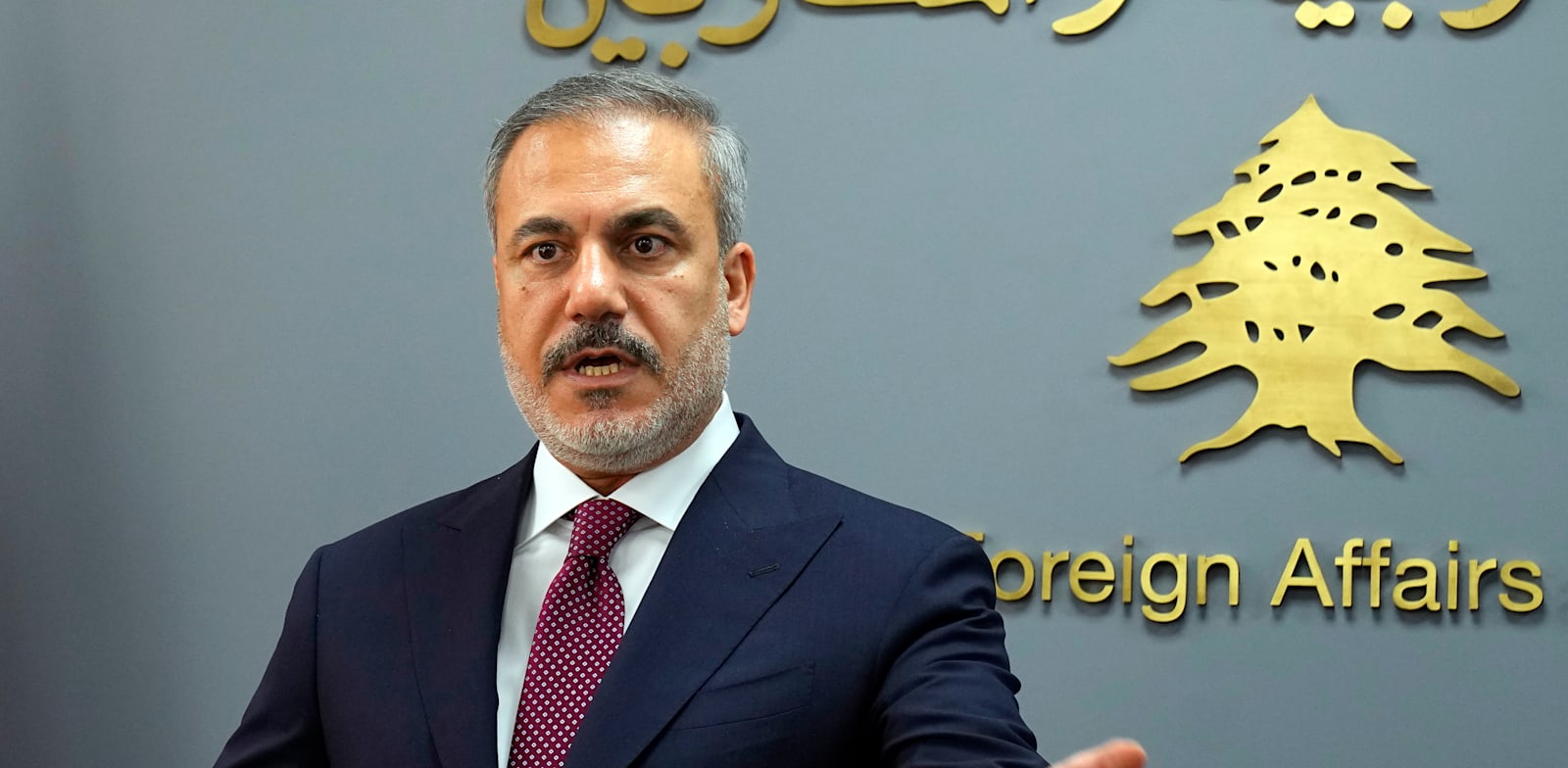In February, Argentina’s economy continued to decline for the fourth consecutive month. President Javier Milei’s economic shock therapy plan began to take effect, resulting in a 3.2% drop in economic activity compared to the previous year, which was less than the anticipated drop of 6%, according to analysts surveyed by Bloomberg. On a monthly basis, activity decreased by 0.2%, as reported by government data on Tuesday. The economy had contracted by 1.9% in the fourth quarter of 2023, indicating that the downward trend is continuing.
Since assuming office in December, Milei has implemented measures such as lifting price controls, freezing public works, and devaluing the currency significantly. These austerity measures contributed to a slowdown in monthly inflation in the first three months of the year, following a peak of 26% in December. Milei has leveraged high inflation to control costs by allowing public wages and pensions to lag behind consumer price increases.
In a national television address on Monday night, President Milei celebrated the country’s first quarterly fiscal surplus since 2008. He emphasized that the surplus is vital in combating inflation, which has been a recurring issue in Argentina. While he remains optimistic about the progress being made, economists are more cautious. They view the fiscal surplus as positive news but express concerns about its long-term sustainability due to its impact on economic activity.
Some worrying statistics include a 24.6% annual decline in construction activity in February and a 12.6% drop in spending at small- and medium-sized businesses in March, which are the largest source of employment in Argentina. Economists surveyed by Argentina’s central bank anticipate a 3.5% contraction in gross domestic product for the year 2024 based on a March poll. As the economy faces challenges, both the government and experts are closely monitoring the situation to determine the best path forward.
Milei’s economic policies have caused significant disruptions in various sectors of Argentine society since their implementation last year. Critics argue that these policies have resulted in increased poverty levels and job losses among lower-income workers who cannot afford higher prices for goods and services.
Despite this criticism, Milei remains resolute and believes that his policies will ultimately lead to greater economic stability and prosperity for all Argentines.
As tensions between supporters of Milei’s policies and those who oppose them continue to escalate, it remains uncertain whether Argentina will be able to overcome its current economic challenges or if it will face further turmoil before achieving sustainable growth once again.
However one thing is certain – with an already struggling economy facing additional hardships from ongoing political unrest and rising debt levels – there is no denying that Argentina needs immediate action from both its government leaders and financial institutions if it hopes to regain its footing before it is too late for recovery efforts.


